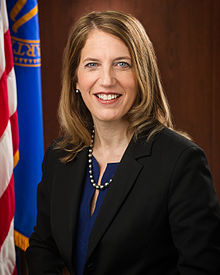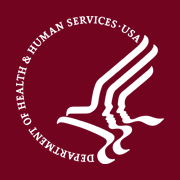Medicaid Coverage Expansion Boosts Healthcare Access in Flint
The residents of Flint, Michigan who have suffered from lead exposure will receive much-needed services and Medicaid coverage expansion.

- In April 2014, contamination in drinking water began in Flint, Michigan when the region transitioned its water source to the Flint River from its previous source of Lake Huron and the Detroit River. The problem at hand is that corrosion control treatment was not included in this new water source and older pipes began leaking lead into the drinking water, which caused significant health problems for many of the residents and specifically children in this region. However, last week, the Department of Health and Human Services (HHS) and the Centers for Medicare & Medicaid Services (CMS) announced the extension of Medicaid coverage for the people of Flint.

The residents of Flint, Michigan who have suffered from lead exposure will receive much-needed services and Medicaid coverage expansion. Specifically, HHS seeks to ensure that all children and pregnant women are offered the services they need to address this public health crisis.
About 30,000 Medicaid beneficiaries will receive additional medical services while another 15,000 pregnant women and children will receive Medicaid coverage, according to a news release from HHS.
The state of Michigan will be expanding Medicaid coverage to children up to 21 years of age along with pregnant women who were receiving drinking water from the Flint River since April 2014 until a date set aside by the governor. These particular residents must have income at no more than 400 percent of the federal poverty level.
“Connecting children to primary care providers who can follow their health as they grow and develop is a critical component of this response and recovery effort,” Dr. Nicole Lurie, HHS Assistant Secretary for Preparedness and Response, stated in the release. “The expanded benefits available through this Medicaid waiver give parents in Flint access to this type of care and support that may be needed to help their children overcome possible effects of high lead exposure. The ultimate goal is for children to thrive.”
Additionally, Michigan is creating a program in which pregnant women and children served by the Flint water system and with incomes up to 400 percent of the federal poverty level will be eligible to buy unsubsidized health insurance.
 “Expanding Medicaid coverage to tens of thousands of expectant mothers and youth means the most vulnerable citizens served by the Flint water supply can now be connected to a wide range of needed health and developmental services, including lead-blood level monitoring and behavioral health services,” HHS Secretary Sylvia M. Burwell said in a public statement.
“Expanding Medicaid coverage to tens of thousands of expectant mothers and youth means the most vulnerable citizens served by the Flint water supply can now be connected to a wide range of needed health and developmental services, including lead-blood level monitoring and behavioral health services,” HHS Secretary Sylvia M. Burwell said in a public statement.
The medical services that these residents will have full access to include blood tests showing lead levels, behavioral health assistance, and others. The expansion of Medicaid coverage will cover all of the benefits offered among beneficiaries throughout the state and the individuals will not be required to pay premiums or cost sharing.
Case management services will also be extended through this new initiative taking place in Michigan. The case management will help Flint residents receive medical, social, and educational assistance related to the lead contaminated water exposure.
The funding for this program has been scheduled to last for five years. HHS and federal support is being offered to ensure Flint residents have access to safe drinking water. Greater control of pipe corrosion as well as bottled water distribution is also being targeted.
While this particular program is meant to specifically address the water contamination crisis in Flint, Medicaid coverage expansion was originally a major aspect of the Patient Protection and Affordable Care Act. At this point in time, the Affordable Care Act and its individual mandate has brought healthcare coverage to more Americans than ever before in US history.
 HHS also reported last week in a news release that the Affordable Care Act has brought healthcare insurance for 20 million people throughout the US. When compared to the health coverage of US citizens in 2010 when the law was initially passed to early 2016, a “historic reduction” in the number of uninsured occurred when an additional 20 million extra people gained health insurance.
HHS also reported last week in a news release that the Affordable Care Act has brought healthcare insurance for 20 million people throughout the US. When compared to the health coverage of US citizens in 2010 when the law was initially passed to early 2016, a “historic reduction” in the number of uninsured occurred when an additional 20 million extra people gained health insurance.
“Thanks to the Affordable Care Act, 20 million Americans have gained health care coverage,” HHS Secretary Burwell said in a public statement. “We have seen progress in the last six years that the country has sought for generations. Americans with insurance through the Health Insurance Marketplace or through their employers have benefited from better coverage and a reduction in the growth in health care costs.”
“Improving the quality and affordability of care for all Americans has always been a pillar of the Affordable Care Act, alongside expanding access to healthcare,” Burwell explained in a release. “The law gives us the tools to put patients at the center of their care, improve quality and help make care more affordable over the long term.”
The extra coverage includes people who received insurance through Medicaid expansion and the subsidies offered through the state and federal health insurance exchanges. Additionally, young adults under 26 years of age were given the right to stay on their parents’ health insurance plans due to a provision within the Affordable Care Act.
A report from HHS shows that 6.1 million young adults between the ages of 19 to 25 years old have health insurance due to the healthcare law. The report also illustrated that coverage gains surpassed racial and ethnic groups when looking at the years 2013 to 2016.
Whether it’s Medicaid expansion in the midst of the water contamination crisis in Flint or a general lack of insurance among large sects of the American population, the Affordable Care Act has brought forth more opportunity to improve healthcare access around the nation.
